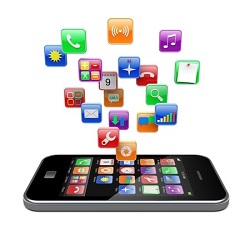Is There Another Reason “There’s An App For That?”
In many ways, technology can make our lives simpler, more productive, and even, more fun. At the same time, some of these advancements can make things more complicated, especially when we look below the surface and judge new technology by not just what it is like to use it, but the implications it has for our ethics. As part of our continuing exploration of ethics and morality in the digital age, today we take a look at apps.
The catchy phrase “there’s an app for that” has become a self fulfilling prophecy, as more and more companies have developed mobile applications to encapsulate or supplement their stores, websites, services, and beyond. In many cases we can see apps as simply more convenient ways to access the same information, a sort of compacted and streamlined version of a website that allows us to have one less browser tab open. In other instances, they bring new features to the table that simplify or supplement the process. We now use phones and other devices to find stores, pay for purchases, or even discover written content and assemble wish lists with speed and ease.
However, a recent article points out that there may be less altruistic reasons for so many companies creating mobile apps – data collection. Mobile apps are not only becoming available for more and more websites and businesses, those who have created them push their use harder than ever. If you view a mobile version of a website on your phone, chances are they have broken in with an ad or a banner encouraging you to use their app instead. This is because apps can collect and acquire more information about you.
Services like “Google Now” allow companies to tap into vast resources and build new functions into their software. Since a phone is generally kept in your pocket or purse at most times (for many people) your phone’s GPS information can provide a pretty accurate assessment of where you go and what you do. Apps can passively collect and track information in the background, so even if you are not using an app or even actively using your phone, the fact that that phone is in your pocket, turned on, and has a certain piece of software installed might mean that the company who makes that app has a constant record of where you go, and what you do.
In some cases this may benefit the consumer. A coupon might pop up when you enter a grocery store, informing you of a chance to save on something you didn’t realize was on sale. In other cases it benefits the companies with these apps, providing them with detailed information about their customer’s habits that they can use to market products and influence changes.
Should apps use GPS technology to track our movements? If so, should it only be when it benefits the customer, and should there be more guidelines about what a company can do with that information? Should the company be clear that they use the app to collect information about you for the company’s benefit?
Staying informed about new technology and the ethical concerns it raises is half the battle. The other half involves discussing them, sharing about them, and making decisions as a family as to what we believe is right. As technology continues to expand into more areas of our lives and becomes capable of increasingly powerful things, our children will need to develop ethics that will help shape the future.













No Comment